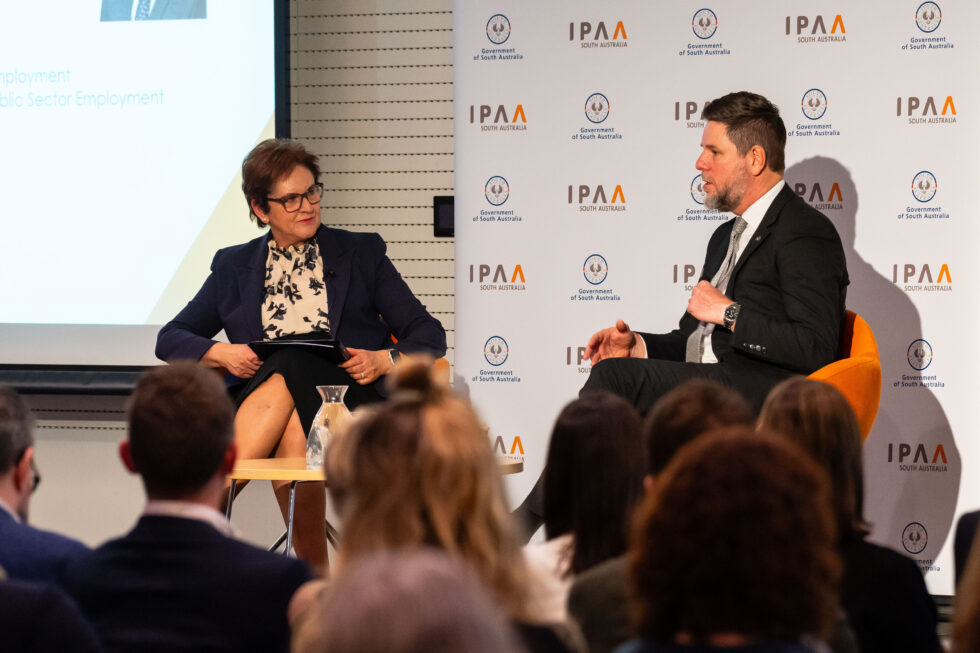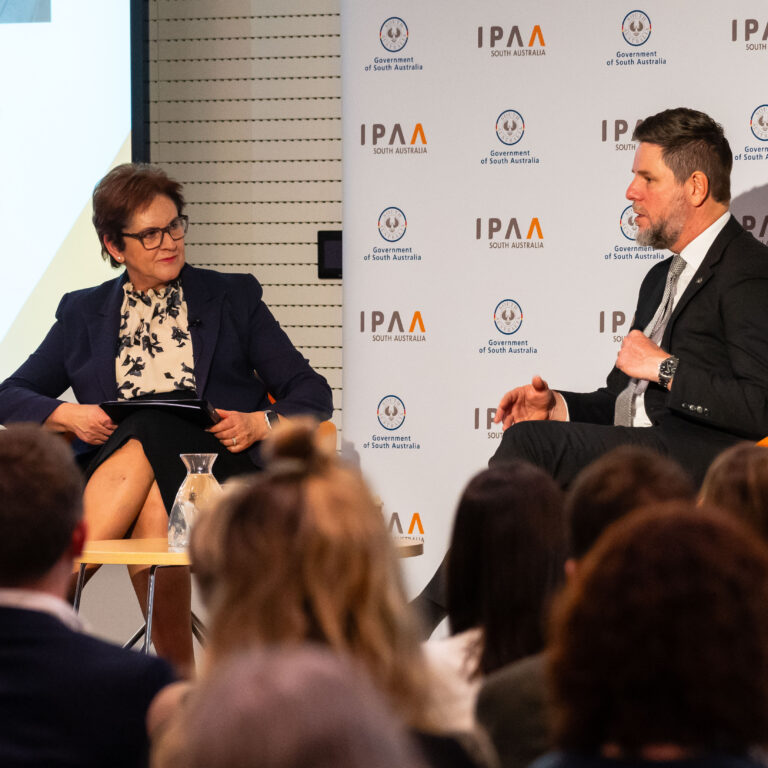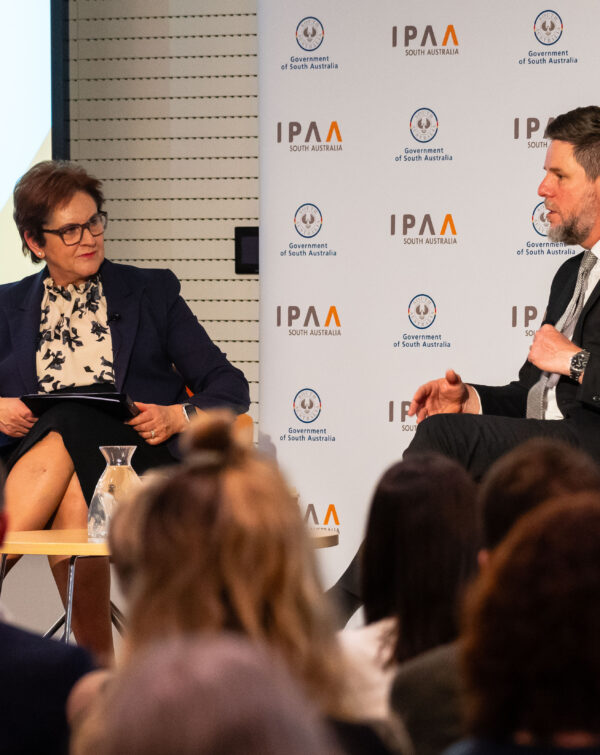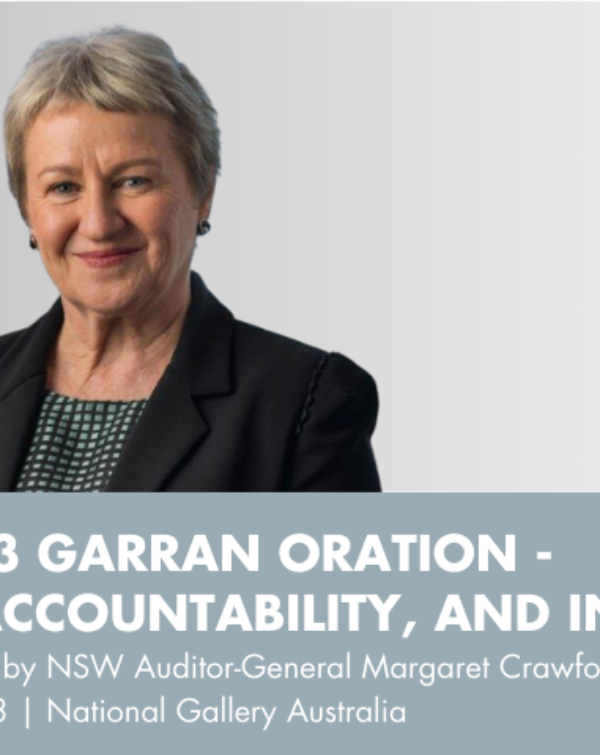Coaching is becoming more of an effective skill as the dynamics of your workplace change. It’s more than just management; it is now about balancing different temperaments and generations, key people with different pressures and challenges, and navigating an online environment which brings a whole raft of new dynamics to your team.
The Institute of Public Administration Australia’s National Summit brought together state and federal perspectives on crucial issues affecting today’s public service.
Across Australia, public servants are experiencing integrity and trust challenges and are seeking ways to strengthen trust with citizens.
At our recent IPAA National Summit, our panel of leading public servants, chaired by Mark Webb FIPAA, Chief Executive of the NSW Department of Parliamentary Services and President of IPAA NSW, shared their thoughts on these issues and reminded public servants that they have much to be proud of.
Feeling pride in public service
Professor Secretary Glyn Davis AC, Department of the Prime Minister and Cabinet, highlighted some of the work he has seen public servants do at the coalface, including at the NDIS.
“Watching a small group of public servants make very difficult choices around the services that should be provided to NDIS participants and the care with which they did it, the interactive way they operated with the people they were working with, the determination to use all of the resources they had to get a better outcome for these people, just reminded me what we get to do in the public service and why it’s worth being here,” he said.
For Belinda Drew, Deputy Director-General, Communities, Department of Treaty, Aboriginal and Torres Strait Islander Partnerships, Communities and the Arts, Queensland, well-executed collaboration was another big point to celebrate.
“To engage collaboratively across government and between governments and organisations outside of government, when that magic occurs, that work to achieve a policy or program objective, that truly is awesome,” Deputy Director-General Drew said.
In similar vein, Brigid Monagle, Commissioner, Victorian Public Sector Commission, highlighted how people pull together to achieve a common goal, particularly in times of crisis.
“During the COVID years, in Victoria but indeed across Australia, I was so proud of the role my colleagues in the Victorian public service played in responding to that.”
Strengthening integrity
All panellists agreed that integrity was absolutely essential for good public service and needed to be reflected in everyday behaviours and interactions within and outside of organisations.
“There are three things that matter in integrity…it’s culture, systems and accountability,” Secretary Davis said.
“It’s got to be more than not being corrupt. It has to be all about every interaction and every move we make in the workplace, being in pursuit of the public interest,” Commissioner Monagle added.
To drive this, Elizabeth Tydd, Information Commissioner, Information and Privacy Commission NSW, recommended to take a step back and look at the authorising environment and have a harm mitigation strategy in place.
“I treat it a bit like risk management: what are the harms that we know, what are the harms that are unknown or latent that might exist in this new system, this new way of operating? What are downstream and upstream impacts, and what would mitigate those risks?”
Rebuilding trust
Integrity is intrinsically connected to trust in public service, which enables people within government to do their best work for Australia’s communities.
“Our policies and programs are not going to have the desired effect unless our communities trust and can rely on them,” Commissioner Monagle said.
Deputy Director-General Drew noted that this level of trust is best built through a feeling of connection with community.
“I reflect on that in the context of our agency’s work in community recovery. When a disaster occurs and people are severely impacted – the sense that you’re there for that community, ready to respond to their needs and issues as they emerge in what are often chaotic environments, is really critical.”
“In non-disaster times, having the relationships, building that proximity with those communities over time really helps in moments when delivery has to happen rapidly,” she said.
A level of trust outside the public service also requires a culture of trust within it and leaders need to remind everyone they have a role to play.
“Culture lives at the intersection between values or what people value and everyday behaviour,” Deputy Director-General Drew said.
“At times that includes being a bit vulnerable yourself and say ‘I got it wrong’ or ‘as a team we didn’t take that in the right direction.’”
Safely leveraging technology
Using technology influences perceptions of trust and integrity. Taking this opportunity to transform services and inform decision making requires governments to look more carefully at systems, procurement and IP rights, according to Commissioner Tydd.
“When we’re using technology as governments, we need to realise we’re not the tech experts. We’ll be reliant on industry, and industry has a great deal of power.”
“We need to better prepare ourselves to ensure that our systems, particularly systems of procurement are such as to preserve the fundamental human rights not only vested on citizens through statute but also that we underpin our democratic system of government.”
Stewardship
Secretary Davis highlighted the role of stewardship in making trust and integrity truly sing in the public service.
“That emphasis on stewardship that you’ve been hearing from Minister Katy Gallagher in relation to the APS and from APS leaders, is, in a sense, a recognition that it’s time to rethink that philosophy of a narrow and thin public sector and to remember that we need capability for bad times, for problems that don’t arise often but need serious attention when they do.
“In one way it’s a truly permanent public service, and it’s our job to ensure that it stays so.”
“Our public services are full of honourable people pursuing an honourable mission in the interests of the country.”
Watch the full event recording below now.
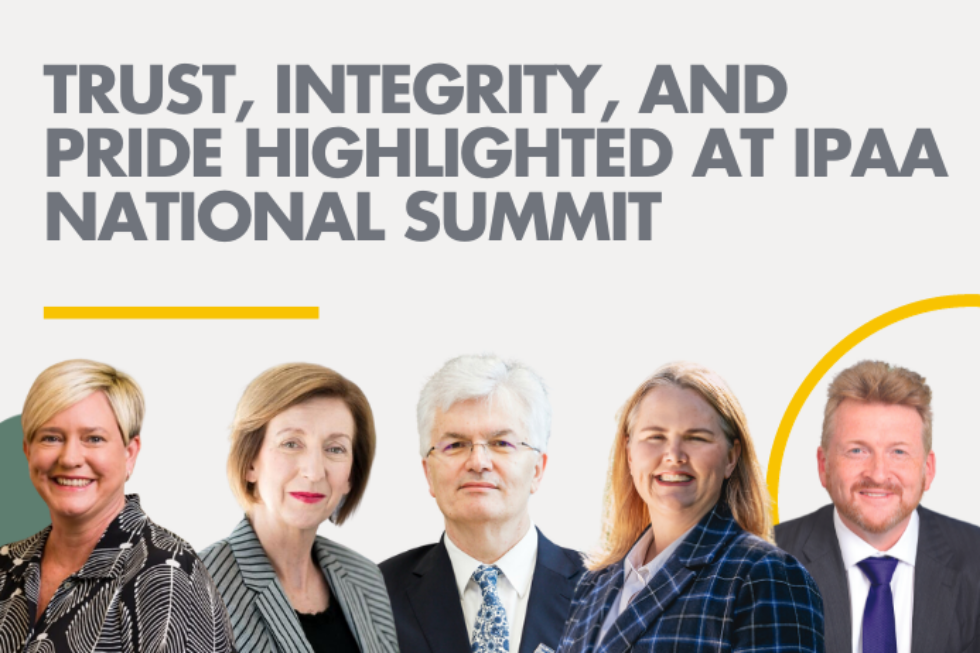
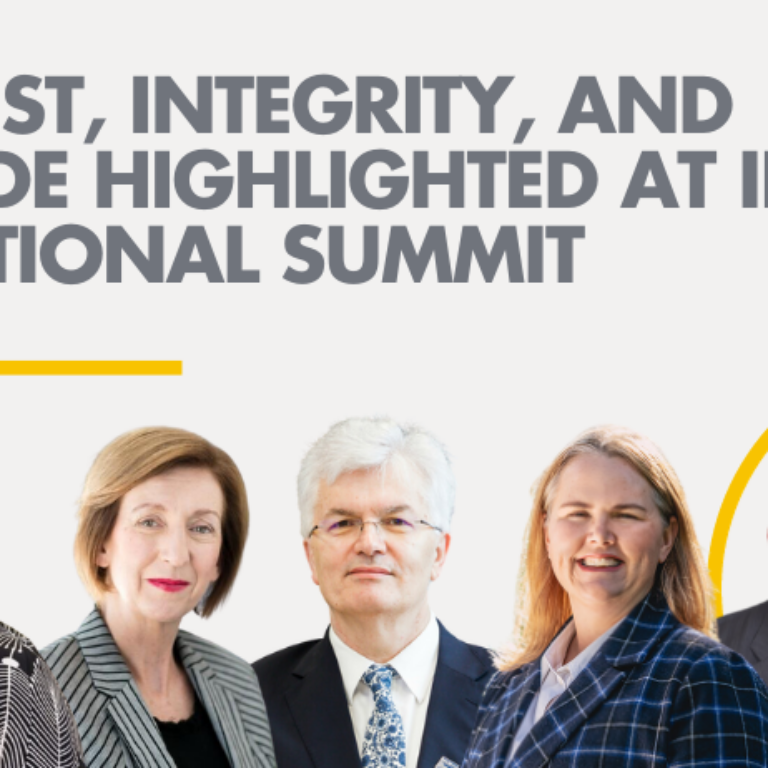
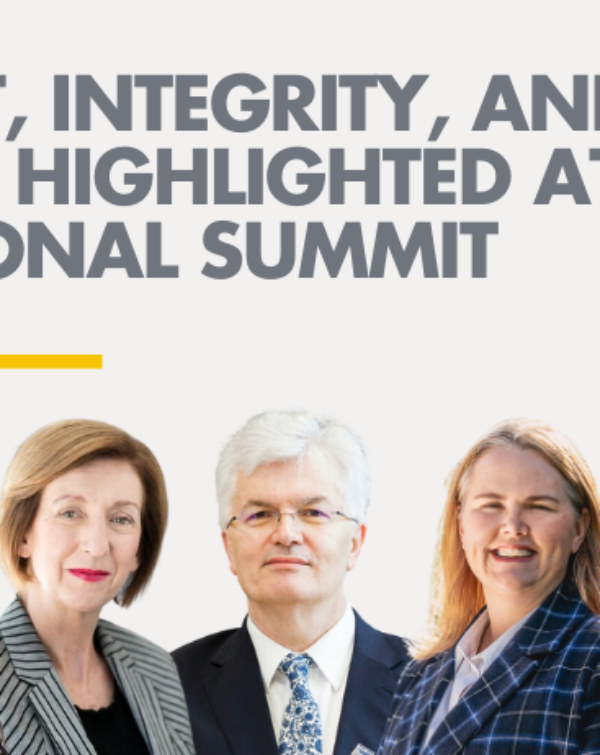
Former Secretary of the Australian Department of Agriculture, Fisheries and Forestry and Director of Biosecurity Andrew Metcalfe AO FIPAA has taken up the role of Institute of Public Administration (IPAA) president after Professor Renée Leon PSM FIPAA stepped down.
At the annual general meeting last week, the IPAA National Council elected Andrew Metcalfe AO FIPAA as their new president.
Recently retired from his role as secretary for the Department of Agriculture, Fisheries and Forestry and Australia’s Director of Biosecurity, Mr Metcalfe looks back on a distinguished career in public service, as secretary of three different departments working directly with 15 portfolio ministers.
Mr Metcalfe said he was honoured to have the opportunity to lead IPAA, and grateful to the previous president, Professor Renée Leon PSM FIPAA, for her exceptional leadership of the organisation since July 2022.
“Public servants undertake key roles for the well-being of the Australian community – every day, throughout Australia and right around the world. Over 2 million people work in the public sector – it is a key part of our economy,” Mr Metcalfe said.
“Well-delivered public services, provided by committed and high-performing public servants, are critical to our future as a country. IPAA National plays a crucial role in promoting excellence and pride in public service – a mission that is especially important in light of recent challenges.
“Under Professor Leon’s presidency, IPAA delivered a highly successful program of events.”
Professor Leon said that she greatly enjoyed working on national programs and priorities to bring diverse perspectives that reflect member needs across Australia.
“It has been an honour to serve as the national president of IPAA. As the voice of the public sector and the champion of its enduring values, IPAA plays a vital role in strengthening public service culture and capability.”
“Over the past year, IPAA has focused on themes of significant importance to public servants across Australia in these times: integrity and values, and engagement with First Nations communities. I was proud to open the National Conference in 2022 and to host Dr Chris Sarra for the second Frances Adamson Oration in 2023, both events which explored these key themes.
“I know there will be more work to progress on both fronts and I have confidence in my successor as president and in the dedicated staff, partners, and members of IPAA to take these themes forward.
“I thank my colleagues from all states and territories for their unity of purpose and their commitment to the values of public service that support citizens and keep our democracy strong and wish IPAA all the best for continued impact and contribution.”
Looking forward, Mr Metcalfe is keen to focus on strengthening IPAA’s relationships.
“Together with the presidents and members of other IPAA divisions, we look to continue to strengthen IPAA’s relationships with wider groups in the public and private sectors involved in advancing public administration in Australia.”
ENDS
IPAA National Media contact: Julia Ahrens, E:julia.ahrens@act.ipaa.org.au, M: 0402 190 656
About IPAA
The Institute of Public Administration Australia (IPAA) is a member-based organisation promoting excellence and pride in public service across Australia. IPAA is a non-profit and non-partisan organisation open to all public servants, academics, and others interested in public administration.
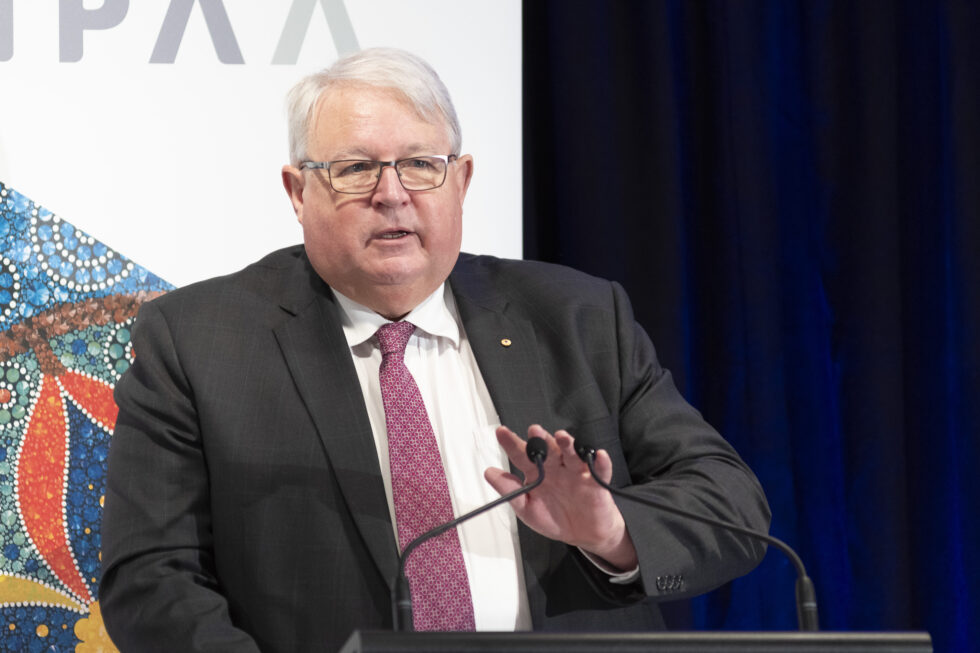
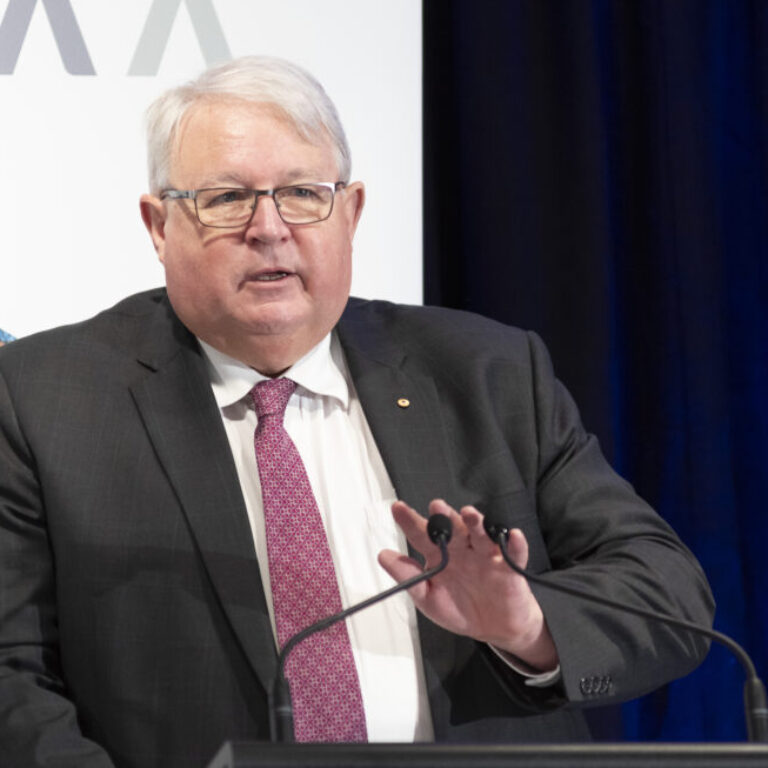
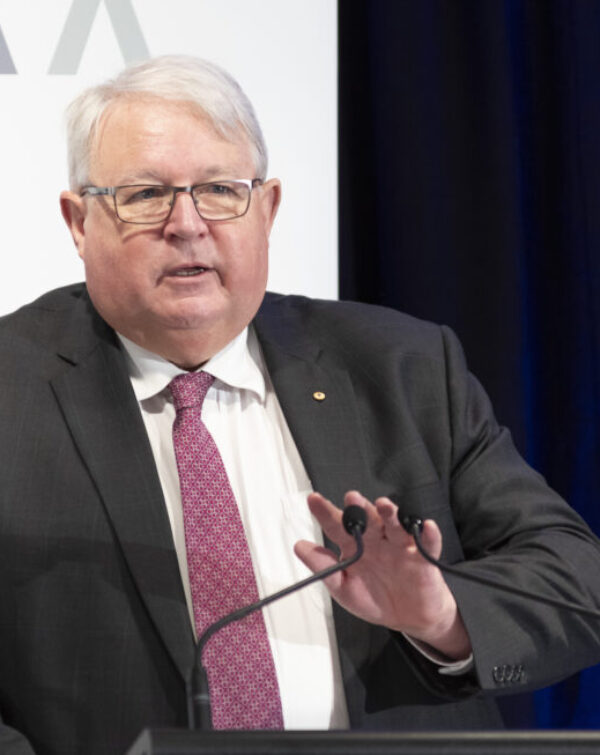
IPAA SA has sat down with some of their longest serving Personal Members to hear their reflections on what they have learnt being in public service for over 20 years. In this article, we explore their answers to the question: ‘What brought you to the public sector and what has kept you here?’
In this series IPAA SA spoke with:
Their responses:
Ruth: For Ruth, it’s about two things – the astounding variety of the work and the great people she has the opportunity to work with. In her experience, she has yet to meet a public servant who isn’t working hard at what they do and trying to do the right thing for the community. This sense of common purpose and value is a strong point of the sector that is unique, given the scale and scope of the work involved. As Ruth explained, she has been part of many reforms and can see her work’s tangible positive effects.
Ruth highlights that it’s a “pretty good feeling when you can go home at night and feel like you’ve improved an outcome for your citizens.” In the South Australian public service, we are particularly privileged as a smaller state, with a so-called “two degrees of separation,” that chances are the work you do in the sector today will impact somebody you know in the future.
Kym: Kym shares that the variety of roles, opportunities for learning and development, networking and making connections, and contributing to the public good have all helped him maintain his passion for public service over the years.
“You just shouldn’t underestimate the values in the service and the importance of Public Service – I mean it’s incredibly important, it’s a huge bedrock for everyone. And, secondly, whatever role you’re in, I think it’s really important to try and make the most of it.”
Anne: “I still remain very committed to making a difference, and so I suppose I look to support and be a catalyst for change,” Anne explains. Through her experiences, she felt that she has had the privileged opportunity to really make an impact, particularly in the areas of social justice. Being able to work on policy and projects concerning our social systems, such as the traineeship system, the innovation system and major reviews, such as the Justice of the Peace system, meant she was able to get involved in roles that spoke to her values and helped her keep a sense of purpose in her everyday work. Having some excellent managers committed to building effective teams and workplace culture supported her passion and commitment to change.
Tanya: Tanya reflects that what brought her to the sector all those years ago is still what keeps her here today, and it comes down to two factors:
When Tanya started at the ASO2 graduate level, she was equipped with her degree but felt untested in the workplace. She found herself trying to navigate the intricacies of Cabinet Ministers and complex stakeholder relationships. Being “thrown into the deep end” was an exciting and challenging time from Tanya’s perspective and promised an exciting future career path.
Being involved in industrial relations for many years in the sector, she eventually came to a crossroads in her career where she realised that she wanted to extend herself into operational human resources. Making a career pivot is never easy, but as Tanya shared, the sector’s diversity was invaluable in making a change that kept her passionate and engaged with her work.
Catherine: When Catherine finished her studies, she was faced with a choice – whether to go into the private sector or explore the opportunities in the public sector. After her exposure to the work in the public sector through several placements during university, her choice was obvious.
“I really enjoyed the passion, the enthusiasm, and the commitment of those working in the public sector. They just were so focused on helping others and improving situations, health, whatever it might be, for other people – it’s such a wonderful kind of sentiment.”
We look forward to hearing more from our Personal Members and you can read each of their full interviews below.
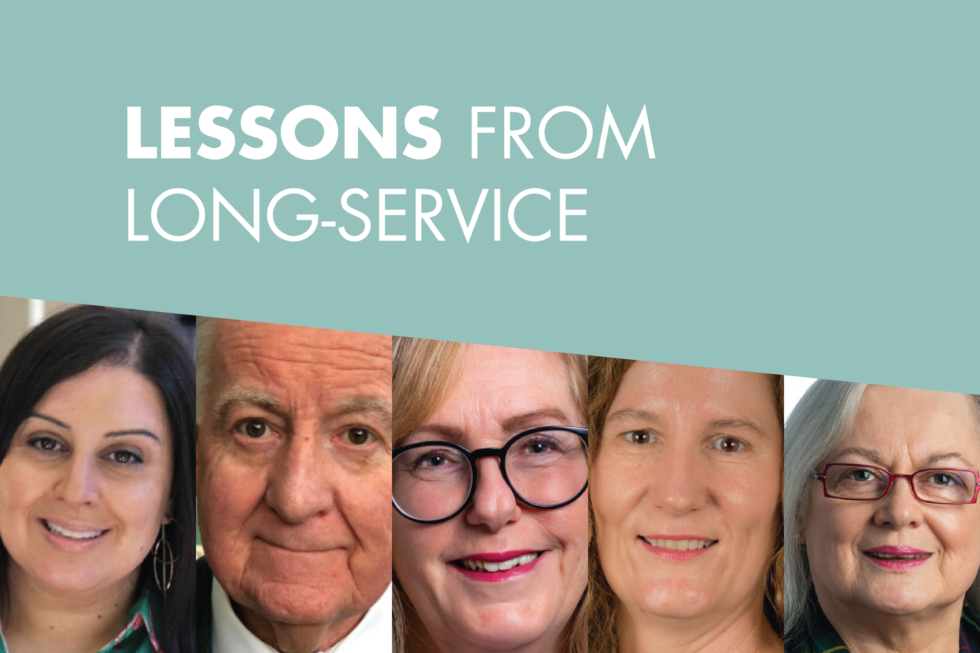
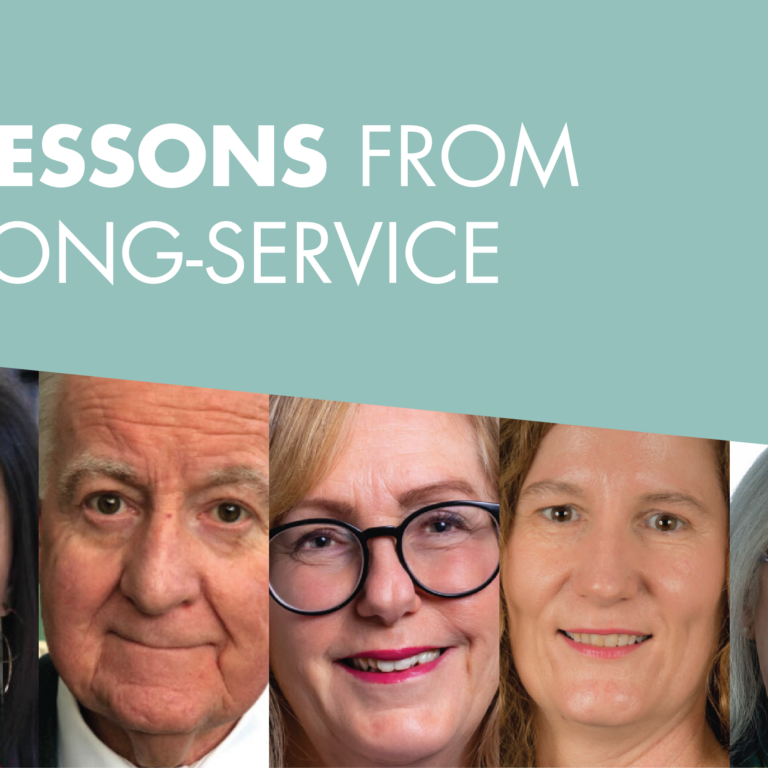
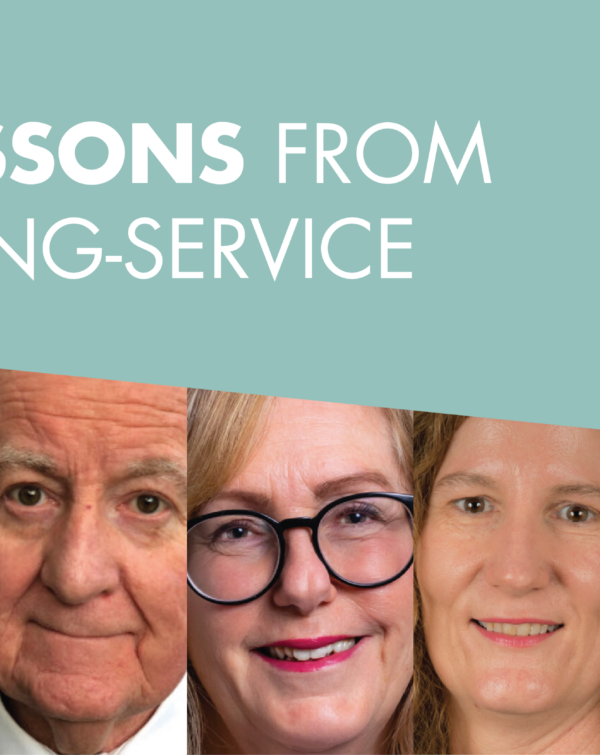
During this insight interview, long-standing public servant, Kym Bills shared insights about his career journey, challenges and lessons learned in the public service. Kym also explains what initially attracted him to working with public policy and some of the pivotal moments that shaped his career.
With over 42 years of working experience to reflect on let’s get straight to Kym’s responses to our questions….
Kym’s career in public service started in 1977 while he was still studying at university. After passing the clerical exams Kym started his first role in the Australian Taxation Office in Adelaide. However, his passion for international relations quickly led to a period working in Foreign Affairs in Canberra and overseas. With his academic background, Kym then entered full time academia as an economics lecturer at Deakin University. His passion for hands-on-policy though, soon demanded that he get back into public service in Canberra, first at the Office of National Assessments, then in immigration and refugee policy, finance and a long period in transport. Along the way he took time out to work for several political leaders in Canberra and Adelaide.
Kym shares that the variety of roles, opportunities for learning and development, networking and making connections, and contributing to the public good have all helped him maintain his passion for public service over the years.
“You just shouldn’t underestimate the values in the service and the importance of Public Service – I mean it’s incredibly important, it’s a huge bedrock for everyone. And secondly whatever role you’re in I think it’s really important to try and make the most of it”. – Kym Bills
Kym explains that he was faced with several very challenging ethical situations in his career. There were three key ways to respond in these situations. Kym shared:
Kym feels that it’s essential to uphold strong ethical standards and make decisions aligned with the best interests of the public.
Kym reflects that one of the most exciting opportunities he had in the service came when he was 35 years old. He was appointed to head a delegation to the International Maritime Organisation in London to argue for a new regime under the UN Law of the Sea involving ‘archipelagic sealanes’. At the time this was a momentous decision to enable ships and aircraft, both commercial and defence, to transit designated lanes in archipelagos unhindered. The intense negotiation involved the US, Indonesia and a number of other countries and as Kym noted, was incredibly challenging – but the payoff for our long-term national interest was incredibly valuable. For Kym, setting up the Australian Transport Safety Bureau and leading it for the decade to 2009 was always exciting and a great privilege.
Kym shares some essential advice for people new to the public service. Kym emphasises the importance of prioritising continuous learning and seeking opportunities to develop new skills. Secondly, to build a strong professional network both within and outside your department to gain diverse perspectives and support. Lastly, being adaptable to changing situations, stay open to new challenges, and demonstrate your problem-solving abilities. He reminds us that just as he saw in his own career the public sector offers a huge variety of experiences.
Leading on from this Kym also highlighted some important takeaways for more experienced public servants. He emphasised how vital it is to reach out to others for support as a manager and that giving back to the profession is something everyone should consider once they reach a certain career stage, for him “the opportunity to Mentor other people is precious”.
Reflecting on this Kym explains that he can see enormous benefit in putting the skills, experience and values of retired public servants into supporting volunteer roles. “The skills you learn in the public service are really adaptable to other things” Kym shares, speaking from personal experience that many public servants are looking for ways to continue serving society beyond the workplace.
On behalf of the IPAA SA Divisional Council, we would like to thank Kym for sharing his insights with the IPAA SA Community and for his many positive contributions and commitment to making a difference. If you would like to be involved in a future IPAA SA Insight Article, you can nominate or suggest a topic here.
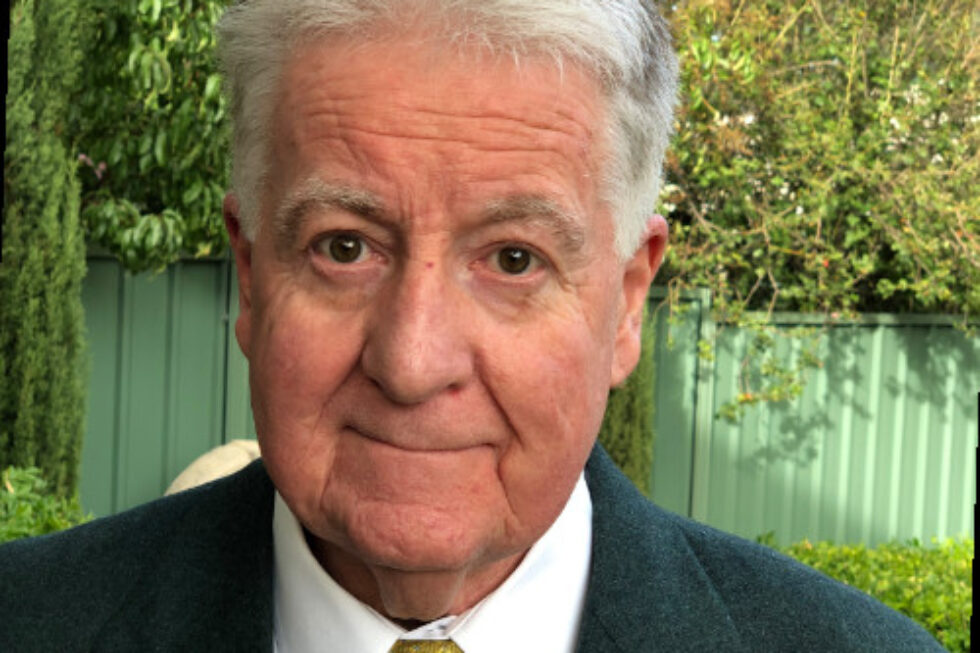
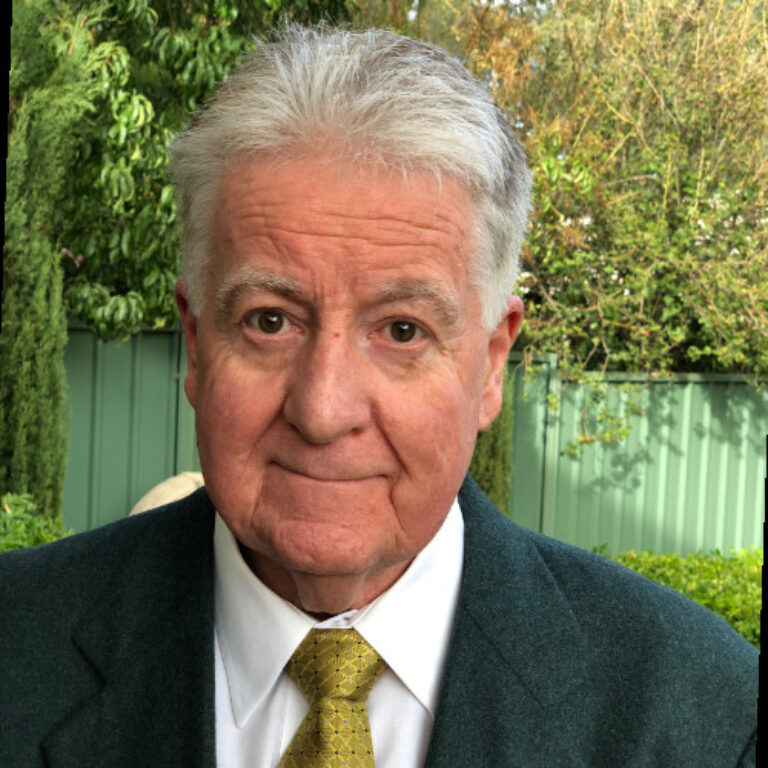
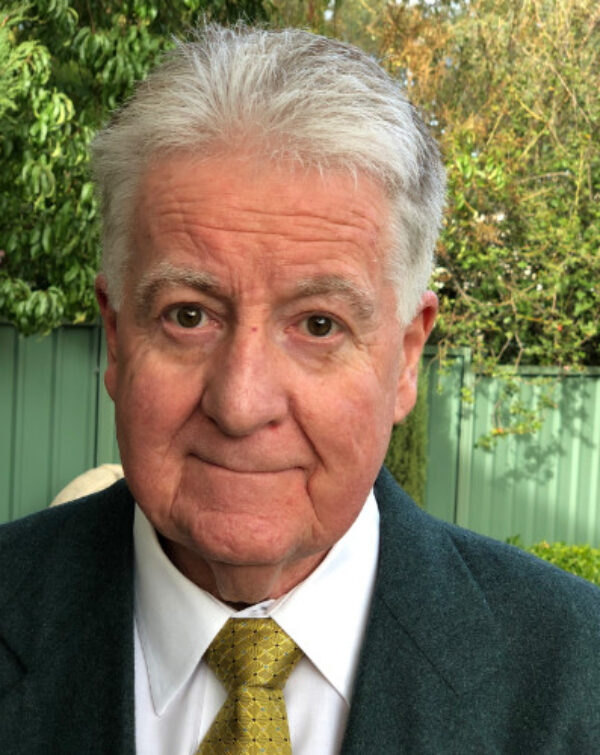
Looking back to 2020 and the onset of COVID-19, we could not have anticipated the challenges that our public sector would face. However, we also had no idea how it would transform the value of the public sector in the eyes of citizens, reigniting trust – and for some public servants such as Catherine Turnbull, Chief Child Protection Officer, South Australia Health – proving the positive value of her many years of public service.
In this Insight Article, we sat down with long-standing public servant and IPAA SA Personal Member Catherine Turnbull to explore the lessons and challenges she has faced over 32 years of service.
“I feel that working in the public sector provides me the opportunity to give to the community”.
With these highlights in mind, let’s jump straight into Catherine’s answers…
When Catherine finished her studies, she was faced with a choice – whether to go into the private sector or explore the opportunities in the public sector. Her choice was obvious after her exposure to work in the public sector through several placements during university.
“I really enjoyed the passion, the enthusiasm, and the commitment of those working in the public sector. They just were so focused on helping others and improving situations, health, whatever it might be, for other people – it’s such a wonderful kind of sentiment.”
Working across jurisdictions, Catherine highlighted that gaining this experience was important for maintaining her perspective and looking at new and different ways of doing things. She encourages people who have only ever worked in one jurisdiction to try and spend some time in another. She emphasises that this is particularly vital when looking at reform, change and improvement – so we can learn from the successes and mistakes of others. Catherine reflected that one of the key examples of this was the Patel case in Queensland. This was said to be a historic day in Australian health workforce governance as the verdict was reached on Jayant Patel, former Head of Surgery at Bundaberg Base Hospital in Queensland, being sentenced to seven years gaol on a verdict of three counts of manslaughter and one of grievous bodily harm. The circumstances of this case and its deliberation is noted to have been a strong force for examining the way health practitioners were regulated and governed. As a culmination of this, the Australian Health Practitioner Regulation Agency was formed to constitute a new approach to health workforce governance. Catherine shared that this case highlighted to other jurisdictions the importance of the accuracy of credentials for healthcare workers and hugely changed policy in this area.
Catherine sees opportunity for sharing between jurisdictions and agencies as vital and, at the time of her being Chief Allied Health Officer for South Australia, there was no network existing to bring together leaders in these roles. She took an active role in changing this, working with colleagues to build an inaugural Australian Allied Health Leadership Forum, which gave a voice to Allied Health at the Commonwealth Level. This led to the resulting creation of the role of Chief Allied Health Officer for Australia. As Catherine shared, “There had not been one of those roles before, so it was really the bringing together of the jurisdictions.” She also highlighted that her current role as Chief Child Protection Officer seems to have brought this circumstance 360, “Interestingly, the role I’m now in as Chief Child Protection Officer, there is no other equivalent in health in the other jurisdictions […] so I think South Australia Health has been really Innovative in [developing] an appointment of this role and it is something that I would like to see other health jurisdictions copy”.
Catherine reflects that she could see huge value in other states and territories adopting similar roles – and the potential for a national committee of these leaders.
“I think it would really strengthen Health’s response to vulnerable children and families in having a group that focuses on that for health focused environments”.
Catherine shares that we are faced with challenges at all levels – but no matter the challenge, it’s important to go into it with a creative mindset and not a linear approach. She highlights that, “You never know when opportunities will arise, and therefore you have to be ready for the opportunity.” For Catherine, this means being clear about what you are aiming for. She suggests writing down your aims in a one or two-page document so that you can come back to reflect on these. Being clear on her aims has been invaluable to her, and she highlights that as those opportunities have arisen to speak at various committees or make decisions, she has been able to come back to these core aims and make a positive difference to the community.
“I think the best lessons are in when things don’t quite work to plan.”
As it should be for everyone, Catherine explains that maintaining her work-life balance is really important – but in some of the roles she has been in, it has been very challenging to achieve this. She reflects that it is so important for our continued wellbeing to take time for ourselves (even if we are busy at work). For her, this means taking a holiday when needed and encouraging her staff to do the same. Catherine remarks that public servants particularly seem to struggle with this, as there is a tendency to place so much value on the work being done, and a fear of losing momentum. She shares that this isn’t the case – you will be able to get the momentum back again, especially if you have a great team around you.
“I say to everybody you are replaceable at work but you’re not replaceable with your family”.
Whether coming straight from university or from the private sector, Catherine has some key advice for newcomers.
‘” do I want to go and do this course or be involved in this research team’ ect.”
“I was so impressed with the way the public sector came together for COVID and particularly the initial COVID response. I was involved with Erma Ranieri’s Office of the Commissioner for Public Sector Employment in finding staff to come into Department for Health and Wellbeing, to help with the work behind all the identification of cases and need for quarantining. [The] way that people put their hand up from across the public sector! They met me in the foyer of the building and I then took them upstairs to all the different levels and allocated them into teams. It didn’t matter what your classification was, nobody was precious, everybody was focused on the task in hand, and it was extremely impressive to watch. I don’t know that the community truly understands the way the public sector pulled together like that and the way that people from within their community stepped up and made a huge difference”.
Catherine also wants to applaud the people who remained in their current teams at the time, as even with far fewer people, “service did not stop.” For Catherine, the COVID-19 experience was a demonstration of the value and capability of the public service that she has always known.
Summing up this interview, and again drawing back to her passion for public service, Catherine enthused us about her ongoing work in partnering with all government agencies to deliver better outcomes for vulnerable children and families. She shares that her department and many others are working together to share information so they can make better decisions and make a difference for children and families in our state.
On behalf of the IPAA SA Divisional Council, we would like to thank Catherine for sharing her insights with the IPAA SA Community and for her many positive contributions and commitment to making a difference. If you would like to be involved in a future IPAA SA Insight Article, you can nominate or suggest a topic here.
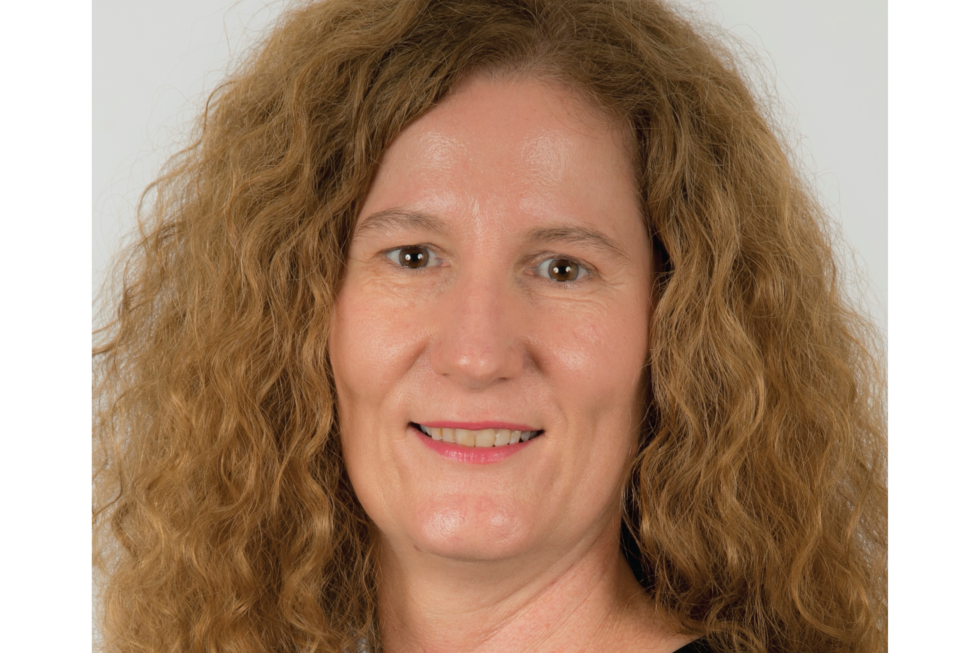
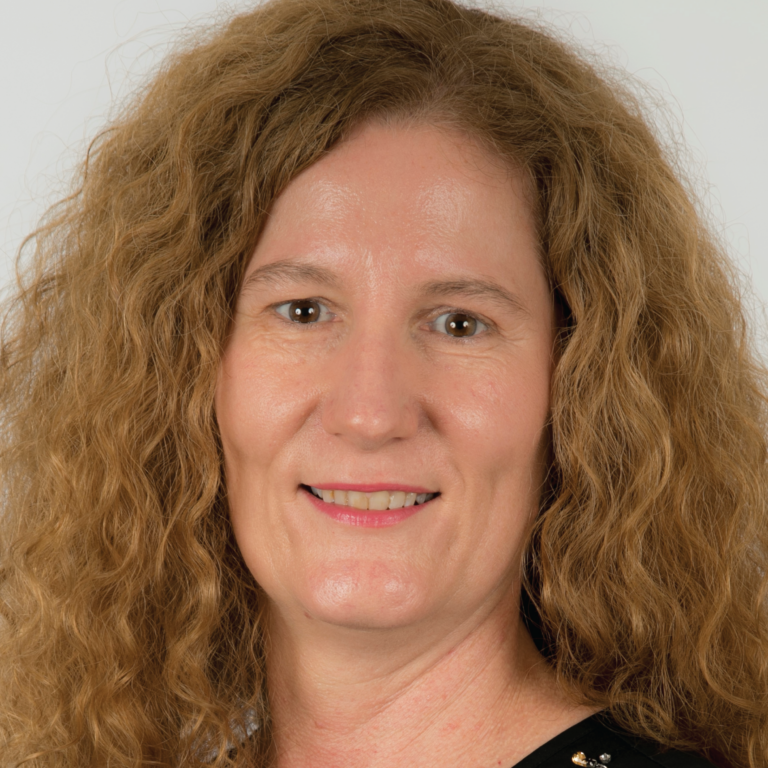
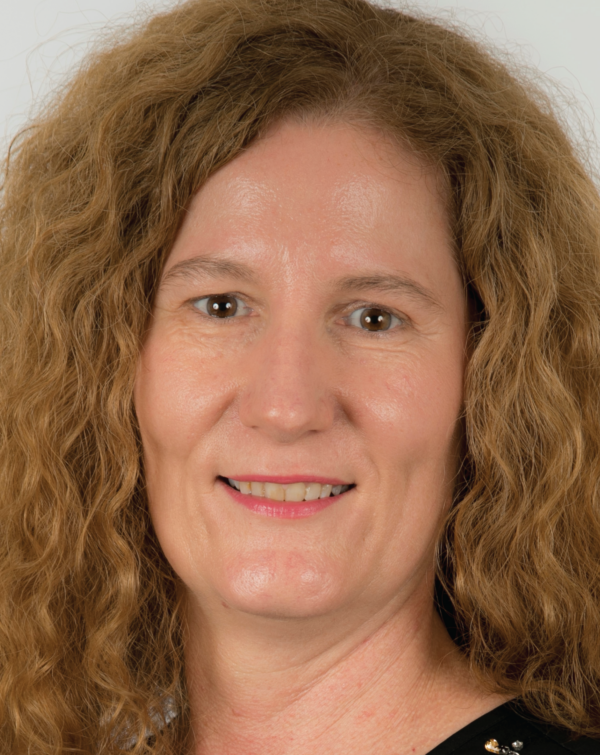
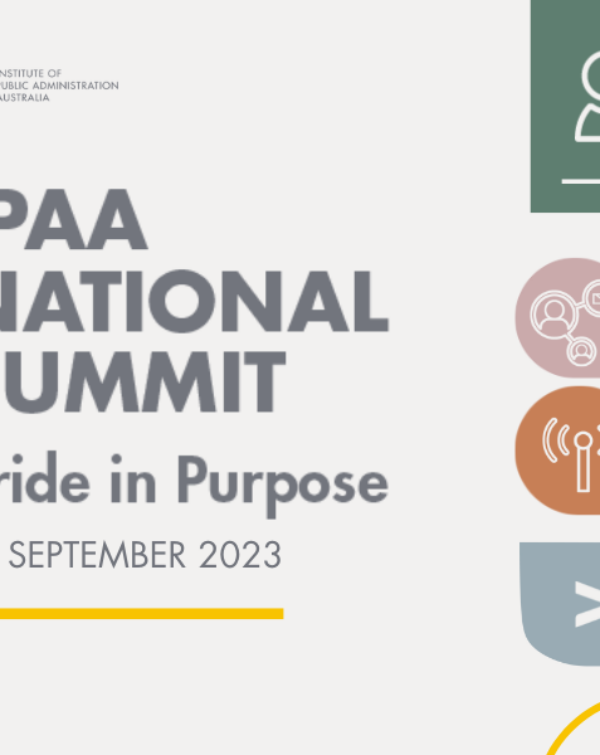
This July, IPAA SA Members had the opportunity to hear from Damien Walker, Chief Executive, Department of the Premier and Cabinet as he joined us for An Hour in the Room. The word that resonates post-event is CURIOSITY, with the ambition of the public sector being a driving force for future achievement and growth in South Australia.
Every public servant has a role to play in fostering a spirit of innovation, problem-solving and continuous improvement.
So, what are some of the things public sector professionals and leaders can focus on to embrace curiosity?
Valuing continuous learning and development encourages public sector staff at all levels to explore new ideas and grow the capabilities needed to make these a reality. As the world continues to rapidly change, we need to focus on developing leaders who can quickly pivot to emerging areas of staff development and embed the value of learning into organisational culture.
If you lead a team, you can focus on making resources and opportunities for learning available for your team and building a positive team culture around it. For team members, try and take an active role in your development and seek out opportunities that could add to your capabilities (and, by extension, your organisation).
Some tips on building a positive learning culture:
As highlighted by Damien, we should seek to create a safe space for public servants at all levels to experiment with their ideas. He explains that we need to develop leaders to allow their people the opportunity to take risks and experiment. In many circumstances, where cost and risk are manageable, there is a need to remove the red-tape to innovative ideas.
Damien also particularly stresses the need for ‘local innovation’, where we can see new ideas being tried at smaller scales – supporting a wide-scale positive shift over time. As he notes, everyone in the public sector should be an innovator and he seeks to give them a licence to innovate and be curious about what could be done better and differently.
For team leaders, you can focus on understanding the factors behind your risk appetite and that of your organisation and having clarity around their communication. Team members can benefit from learning about risk from the management perspective and honing their communication skills, so that when you have that great idea, you can get the support you need.
‘Good’ innovation does not always mean success, and often we learn the most important lessons through our failures along the way. Damien shares that we need to “shine the light” on examples of innovation done right – where we celebrate success and are open and unafraid to explore and learn from ideas that are ‘less successful’.
The markers of ‘good’ innovation are not always straight-forward; however, the following can collectively help us decide on its effectiveness and value.
If you are a team leader, you can support this by creating psychologically safe spaces and putting systems for reflection and recognition in place. As a team member, you can focus on calling out good ideas, supporting your colleagues and building resilience, to make the most of every challenge and opportunity.
Damien shares that rigid frameworks can inhibit our ability to act on our curiosity and instead highlights a few key considerations that leaders and public sector staff can use to guide their thinking.
Learn more and watch the recording of An Hour in the Room with Damien Walker here.
